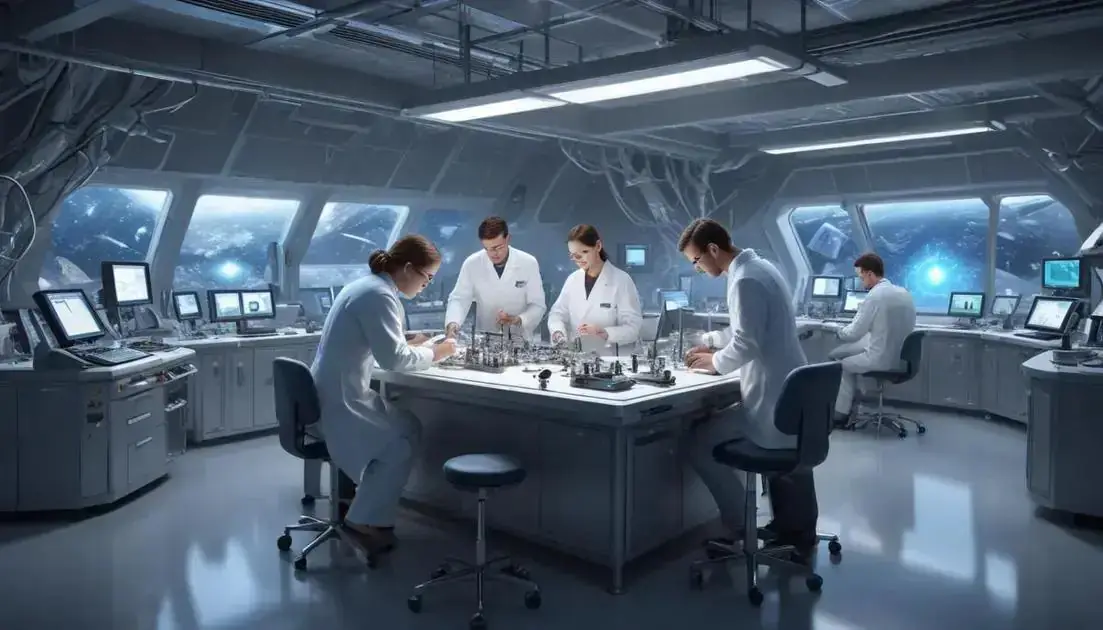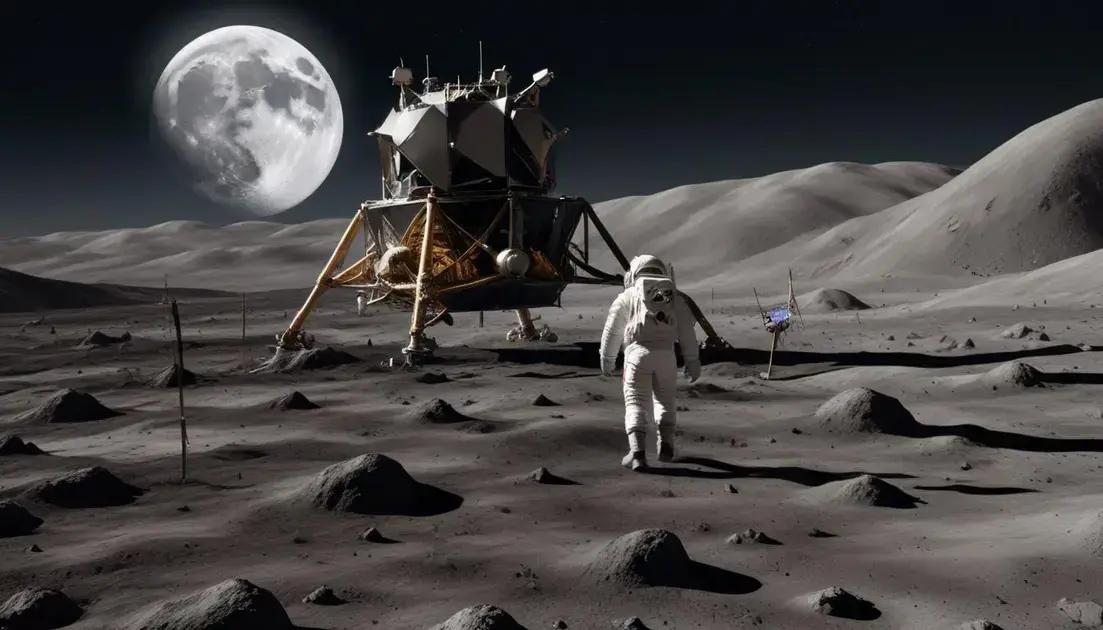
The engineers behind the new space age
Future space exploration missions are set to significantly enhance our understanding of the universe. Key missions, such as manned trips to Mars and returning to the Moon, aim to uncover the potential for life beyond Earth and establish bases for further exploration. These missions foster international collaboration, leading to shared knowledge and advancements in technology that benefit everyday life. As humanity pushes the boundaries of space travel, we can expect innovative breakthroughs that will inspire generations and expand our capabilities in both space and on Earth.
Have you ever wondered about the incredible advancements in space exploration? Engineers play a crucial role in making the seemingly impossible a reality, continuously pushing the boundaries of science.
The role of engineers in modern space exploration
Engineers are the backbone of modern space exploration. They design and build the rockets that take us beyond our planet. Every launch is a result of their hard work and innovation.
Designing Rockets and Spacecraft
Creating a rocket isn’t easy. Engineers must think about how to make it strong yet light. They test materials and designs to ensure safety in extreme conditions. This process is crucial for successful missions.
Software Development
Engineers also work on software that controls spacecraft. This software helps steer and communicate with the vehicle while in space. It’s like having a pilot, but for a robot! They run tests to fix any bugs before launch.
Collaborating with Scientists
Engineers often work alongside scientists. They help turn scientific ideas into reality. When a scientist wants to explore Mars, the engineer figures out how to get there! Together, they push the limits of what we can discover.
Overcoming Challenges
Space is tough! Engineers face many problems, like how to protect equipment from radiation. They create solutions to ensure everything works perfectly during the mission.
Future of Space Exploration
The future is bright for space exploration. Engineers are developing new technologies like reusable rockets. This means cheaper and more frequent trips to space. It’s an exciting time to be a part of this field!
Innovations that shape the future of space travel
Innovations in space travel are happening every day. These developments are reshaping how we explore the universe. From new engines to advanced materials, engineers are at the forefront.
Reusable Rockets
One major innovation is the reusable rocket. This technology reduces launch costs. Rockets can go to space and return safely, ready for the next mission. Companies like SpaceX are leading the way in this area.
Advanced Propulsion Systems
Engineers are also creating new propulsion systems. These systems are faster and more efficient. For example, ion propulsion uses electricity to move spacecraft, allowing longer missions without heavy fuel.
Smart Spacecraft
Spacecraft are getting smarter. New software helps craft make decisions during missions. This means they can adjust their path on the fly to avoid space debris or other obstacles.
3D Printing in Space
Using 3D printing in space is another exciting innovation. Engineers can create parts on-demand. This reduces the need to launch everything from Earth, saving time and resources.
Life Support Technologies
Innovations in life support systems are vital too. Better recycling methods for air and water ensure astronaut safety. New technologies keep crews healthy during long missions.
These advancements are just the beginning. As more ideas come to life, the future of space travel looks brighter than ever!
Challenges faced by aerospace engineers
Aerospace engineers face many challenges every day. These hurdles can make their jobs tough but also rewarding. Understanding these challenges is key to appreciating their work.
High Standards and Safety Regulations
One big challenge is meeting high safety standards. Rockets and planes must be safe for all passengers. Engineers have to follow strict rules and tests to ensure everything is perfect.
Complex Designs and Technologies
Another challenge is the complexity of designs. Aerodynamics, propulsion, and materials science all play a role. Engineers must understand how these parts work together to create safe and efficient aircraft.
Budget Constraints
Budget limitations can also be tough. Projects often have strict budgets, forcing engineers to be creative. They must find ways to do more with less without sacrificing quality.
Time Pressure
Time is another factor. Engineers often work against tight deadlines. They need to balance speed and thoroughness to meet launch schedules while ensuring safety.
Keeping Up with Innovations
Technology is always changing. Aerospace engineers must keep learning about new tools and methods. This continuous education is crucial to stay ahead in the field.
Despite these challenges, aerospace engineers push forward. Their dedication helps make big advances in the world of flight and space exploration!
The impact of space exploration on daily life
Space exploration affects our daily lives in many surprising ways. It may seem distant, but its impact is felt all around us. From technology to inspiration, the benefits are endless.
Everyday Technologies
Many gadgets we use every day come from space research. For example, GPS helps us find our way. This tech was developed for satellites orbiting Earth.
Medical Advancements
Space exploration also leads to medical breakthroughs. Techniques like advanced imaging and telemedicine help doctors treat patients better. These innovations often arise from research in space.
Environmental Awareness
Observing Earth from space improves environmental protection. Satellites monitor climate change and track natural disasters. This information helps us respond quickly to protect people and the planet.
Global Collaboration
Space exploration brings countries together. Scientists from different nations work on projects as a team. This collaboration promotes peace and understanding among nations.
Inspiring Future Generations
Lastly, space exploration inspires young minds. It encourages kids to dream big and pursue careers in science and engineering. These aspirations drive the next wave of innovation.
The impact of space exploration is far-reaching. It shapes our technology, society, and future in countless ways.
Future missions and their significance
Future missions in space hold great significance for science and humanity. They’re not just about exploration; they change our understanding of the universe.
Exploring Mars
One major goal is to send humans to Mars. This mission aims to learn if life ever existed on the red planet. It will also show if humans can live on another planet.
Returning to the Moon
Another exciting mission is to return to the Moon. The Artemis program plans to land astronauts on the Moon by 2024. This mission will help us build a base for future space travel.
Studying Asteroids
Asteroid missions are also in the works. These missions aim to collect samples and learn about the early solar system. Understanding asteroids can help protect Earth from potential impacts.
International Collaboration
Future missions often involve many countries working together. This collaboration promotes peace and shared knowledge. Different nations contribute technology and expertise for successful missions.
Advancing Technology
Each mission leads to new technologies. These innovations improve life on Earth, from better materials to advanced robotics. What we learn in space often benefits everyday life.
Overall, the future missions are crucial for exploring our universe. They inspire generations and deepen our understanding of life beyond our planet.
Conclusion
In conclusion, the future of space exploration is bright and full of promise. Missions to Mars, the Moon, and beyond will expand our understanding of the universe. These efforts are not just for scientists; they inspire people everywhere. By pushing the limits of technology and international collaboration, we can learn more about our place in the cosmos.
Moreover, the advancements we make in space often lead to benefits here on Earth. From new technologies to breakthroughs in science, the impact of space exploration is felt in our daily lives. Embracing these missions can unlock new opportunities for innovation and discovery. As we look to the stars, we move closer to uncovering the mysteries of life beyond our planet.


